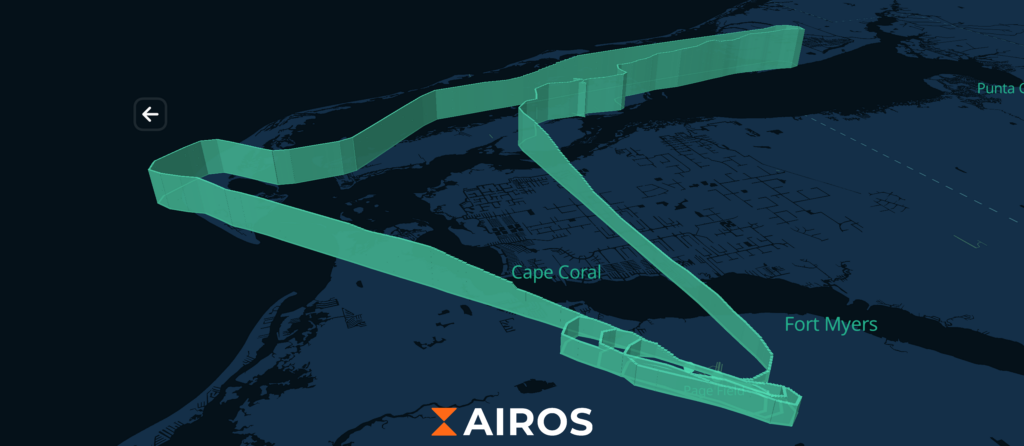Imagine this: You’ve just booked time in a high-performance aircraft, excited to take it for a spin. You walk into the flight school, hand over your logbook, and the instructor behind the desk starts flipping through it. Then, they pause.
“Uh, you do have the endorsement for this, right?” You freeze. Your mind races. Did my instructor sign off on that? Did I ever get it? Next thing you know, instead of taking off on your next adventure, you’re back at home, flipping through your logbook, kicking yourself for not keeping better track of your endorsements.
Endorsements aren’t just bureaucratic red tape—they’re what stand between you and the aircraft you want to fly. Whether you’re a student pilot ready for your first solo flight or a seasoned aviator leveling up, keeping your endorsements current, accessible, and in check is crucial.
This guide will break down what aviation endorsements are, why they matter, and why you really, really need to keep them organized, especially if you’re a CFI.
Endorsements in a Nutshell
Endorsements are required by the Federal Aviation Administration (FAA) and are considered official approvals from a Certified Flight Instructor (CFI). They need to be recorded correctly in your logbook to confirm you have met the necessary training requirements for a specific checkride, flight activity, or aircraft.
Pilots earn endorsements to gain new skills, operate specialized aircraft, stay current, and more. From solo flights and complex aircraft to tailwheel, high-altitude, and aerobatic training, these authorizations expand what and where you can fly.
For CFIs, issuing endorsements is one of their most significant responsibilities. It is not to be taken lightly—nor does the FAA treat it as such. Each endorsement you provide is a formal attestation of a pilot’s competency and readiness for the privileges it grants. Not to mention, the FAA mandates that CFIs retain records of all issued endorsements for a minimum of three years.
The Must-Have Aviation Endorsements
Although regulatory changes and special operations may introduce additional endorsements, most pilots and CFIs encounter around 20–25 distinct endorsements throughout their careers. The most common, and important endorsements include:
- Solo Flight Authorization
- Complex, High Altitude, High-Performance, or Tailwheel Aircraft
- Spin Training
- Flight Review
Why Keeping Endorsements Up to Date is a Big Deal
1. Staying Legal
Imagine explaining to an FAA inspector why you’re flying a high-performance aircraft with zero proof of training. Spoiler alert: It won’t go well. Flying without proper endorsements can lead to fines, certificate suspension, or even having to retake your check ride. Not exactly a pilot’s dream day.
2. Avoiding Awkward “Oops” Moments
Nothing ruins a flying day faster than realizing mid-preflight that you can’t legally fly the aircraft you just rented. Keep your endorsements handy so you can say, “Yes, I’m good to go!” instead of “Wait… let me check.”
3. Impressing Employers & CFIs
Whether you’re a student pilot, flight instructor, or an airline hopeful, being able to quickly prove your endorsements shows professionalism. It’s like showing up to a job interview with an organized resume—except instead of getting a job, you get more flight privileges.
4. Insurance Won’t Bail You Out If You Mess Up
Aviation insurance companies are sticklers for endorsements. If you fly without the required one and something goes wrong, they might deny your claim, leaving you with a very expensive problem.
Who Needs Endorsements?
Student Pilots – Endorsements are your rite of passage, marking milestones like your first solo flight, solo cross-country trips, and private pilot check ride.
Private & Commercial Pilots – Want to fly a high-performance aircraft? Complex? Pressurized? Tailwheel? You’ll need the right endorsement for each.
Flight Instructors (CFIs) – CFIs issue endorsements, but they also need their own—like spin training and tailwheel qualifications—to teach advanced skills. More importantly, the FAA requires CFIs to keep a perfect record of all endorsements issued in the last three years.
Employers – Depending on the job, you might need a specific endorsement to qualify. No endorsement? No job offer.
What Happens If You Can’t Provide Proof of Your Endorsements?
Your Flight Plans Get Grounded – If you don’t have the right endorsement, you’re not flying. Period.
Legal Trouble & Fines – FAA inspectors don’t take “I forgot” as an excuse.
No Insurance Coverage – Fly without the proper endorsements? Your insurance might wave goodbye to your policy.
Checkride Cancellations – Missing, expired, or incorrect endorsements = no check ride.
How to Keep Your Endorsements Readily Available
Use a Digital Logbook – Old-school paper logs are fine, unless you fall behind in logging or need to quickly access an endorsement or certificate. Digital logbooks, like AIROS keep everything organized, backed up, and accessible in seconds. Not to mention, AIROS has all Endorsements pre-built straight out of Advisory Circular 61-65J.
Check In With Your Instructor – Regular chats with your CFI ensure you have every endorsement you need—before you need it.
Review FAA Regulations – Aviation rules change. Stay updated so you’re always compliant. Reference Advisory Circular 61-65J regularly: https://www.faa.gov/documentlibrary/media/advisory_circular/ac_61-65J.pdf
Set Reminders – Especially for Flight Reviews or other time-sensitive endorsements—because no one likes last-minute scrambling.
Endorsements Keep You Flying & Out of Trouble
Endorsements aren’t just bureaucratic hurdles—they’re your ticket to flying safely, legally, and confidently. Keeping them up to date and easily accessible ensures you’re never caught off guard, whether it’s an FAA ramp check, a flight review, or a job interview.
Take the Guesswork Out of Endorsements with AIROS!
Record perfect endorsements straight out of Advisory Circular 61-65J, stay compliant whether you’re a student or CFI, and log your flight hours effortlessly. Join AIROS free and enjoy 20 hours of premium features on us. No credit card required. [ Link]
Frequently Asked Questions (FAQs)
1. How long do aviation endorsements last?
Many endorsements don’t expire, but some (like the Flight Review endorsement) must be renewed every 24 months.
2. What’s the difference between an endorsement and a type rating?
An endorsement certifies specific skills (e.g., high-performance aircraft, tailwheel, solo flight), while a type rating is required for flying large or jet-powered aircraft. Type Ratings also involve an FAA Checkride, whereas Endorsements are issued by a Certified Flight Instructor.
3. Do airlines check endorsements before hiring?
Absolutely. They check all aspects of your training history, including endorsements, before letting you near their fleet.
4. How can I verify my endorsements are correct and/or current?
Use a digital logbook, check in with your instructor, and review FAA guidelines regularly to stay compliant.

